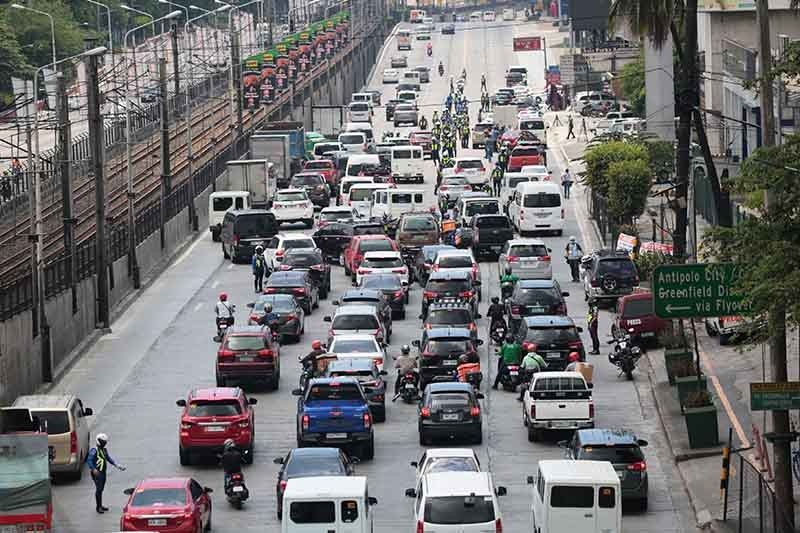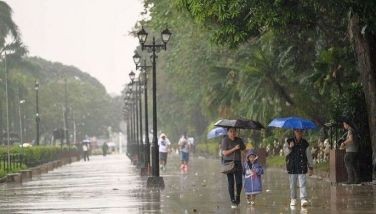Confused about the 'Authorized Persons Outside of Residence' policy? Here's a quick guide

MANILA, Philippines — As Luzon entered its fifth week under Enhanced Community Quarantine, authorities noticed a surge of private vehicles on Metro Manila roads despite restrictions on movement sill being in place.
Cabinet Secretary Karlo Nograles on Wednesday said President Rodrigo Duterte ordered the Philippine National Police to “strictly impose the policy of authorized persons outside of residence (APOR).”
In a virtual briefing, task force spokesperson Nograles said that APORs are those who were listed as exempted from the quarantine by the Inter-Agency Task Force on Emerging Infectious Diseases. This includes health workers and workers in essential services.
Who are allowed to leave their homes during the enhanced community quarantine?
According to the PNP’s Joint Task Force Corona Virus Shield (JTF CV Shield), workers employed in “basic services” such as in medical, funeral, security services and emergency responders are allowed to leave their homes.
Workers in utilities and in daily essentials such as banks and markets, and those involved in essential goods are also listed as APORs.
Other authorized persons are skeleton forces of the government, media personalities, Overseas Filipino Workers, agribusiness and agricultural workers, and civil aviation-related personnel.
One person per household is also allowed to go outside to buy basic necessities and provisions of food.
Why is movement outside the residence being restricted?
To curb the spread of the new pathogen, experts suggest practicing social distancing, a new term for people staying away from crowds and being at least six feet away from each other.
Nograles appealed that the ECQ will only be effective in containing the spread of the deadly virus if “people will not roam around and go out.”
“This is all being done for us and for our families in order to prevent the virus from spreading,” he added.
The UP COVID-19 Pandemic Response Team said in a recent report that the enhanced community quarantine of Luzon—along with other interventions—appears to have been successful in containing the spread of the virus.
What do you need to show to authorities at checkpoints?
The PNP said that while IDs issued by the IATF will be honored at checkpoints, a "basic ID is enough."
"If the person is included in the list of APOR, just present company, IATF or [Presidential Communications Operations Office] ID, and a certificate that the person is authorized by the company to travel to and from work," Police Brig. Gen. Bernard Banac, Philippine National Police spokesperson, told Philstar.com in a text message.
Banac said that authorities manning the checkpoints have a list of professions and sectors considered APORs and will be stricter in implementing the policy.
"If no ID, no entry," he stressed.
A barangay certificate cannot substitute as an ID either, Banac said, unless the bearer works for the barangay.
Are quarantine passes needed?
Banac said that quarantine passes are only for local government units that issue them.
Lt. Gen. Guillermo Eleazar for his part told Philstar.com that the PNP’s task force does not consider the quarantine pass as a strict requirement "because there are LGUs that did not provide as such."
Eleazar is the commander of the PNP’s JTF CV Shield.
"We are coordinating with [National Capital Region] LGUs through the [Metropolitan Manila Development Authority] so we can reach a better arrangement [on this],” Eleazar added.
Will you be penalized if you leave your homes without authorization?
Banac said those caught outside their residence will be warned and sent home.
"If disobedient and resisting authorities, they may face arrest under Bayanihan to Heal as One Act," the PNP spokesman added.
Nograles, meanwhile, said that if the driver or any of the passengers of private vehicles are found to be outside their homes without authorization, violation receipt tickets will be issued. — with reports from Gaea Katreena Cabico
Related video:
- Latest
- Trending


































